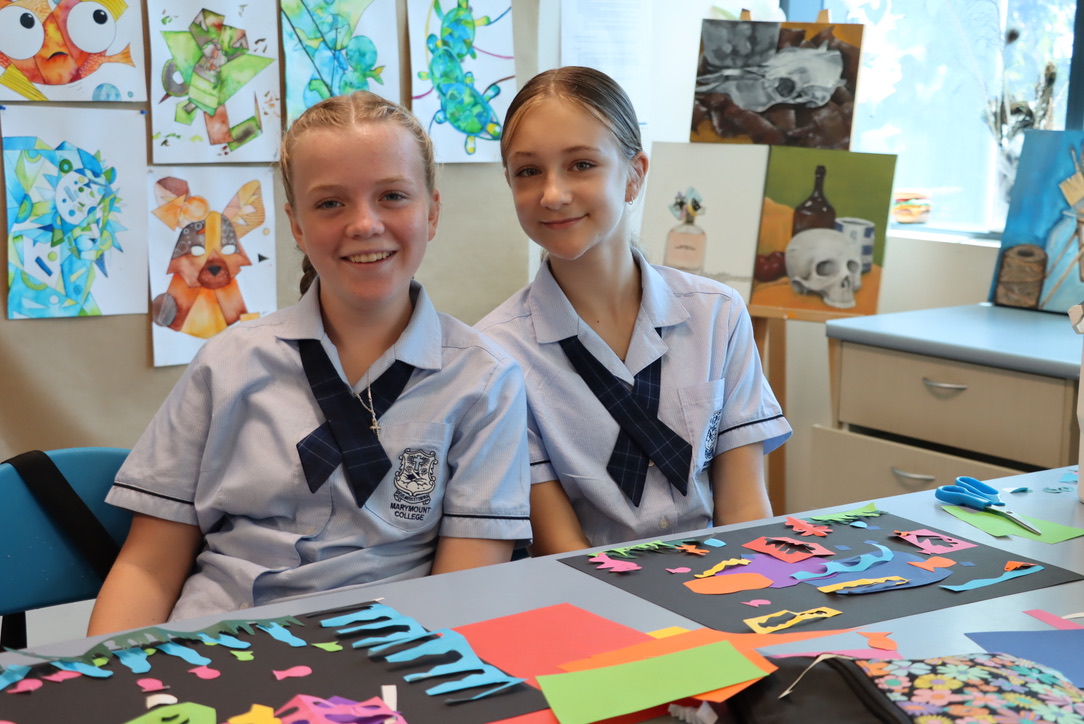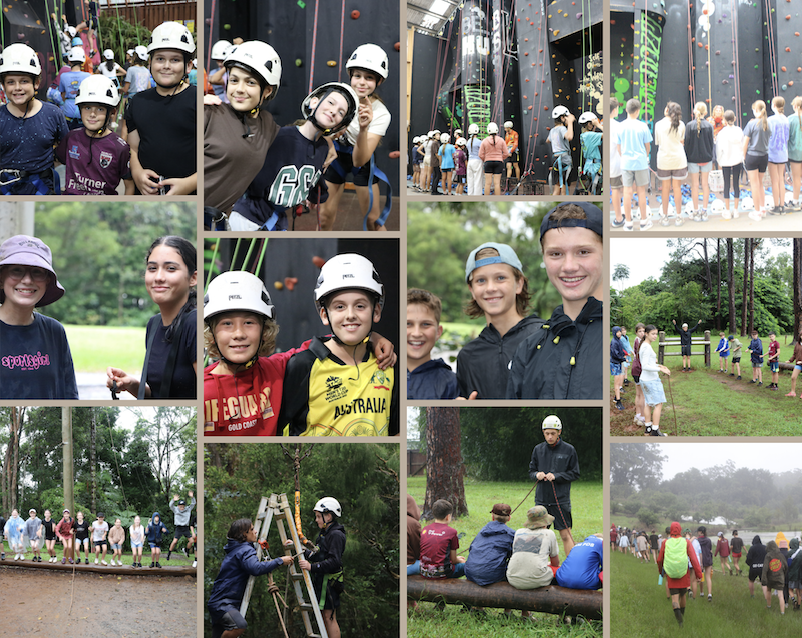
© Brisbane Catholic Education, Marymount College (2025)
Junior Secondary Program
The Junior Secondary program at Marymount College will provide a rich learning environment for adolescents in Years 7 – 9, at a time characterized by growth and adjustments to profound physical, intellectual, emotional and social changes. Through the pastoral care program and co-curricular activities, students are provided with many opportunities to gain self-confidence and develop a sense of self-worth from activities - both inside and outside the classroom. Three years of Junior Secondary provides an opportunity for our students to develop a sense of identity and belonging to a safe, supportive and secure community.
We are very mindful that the transition from Primary to Junior Secondary requires some adjusting for
students and our transition program will ensure that we cater well for students in this regard. Year 7 and 8 often coincide with the onset of independence when young people develop a need for autonomy and social identity that sometimes excludes their parents. However, it is during this time that they seek out and rely on their parents for supportive and active involvement in all aspects of their life including school. We value a strong school-family partnership throughout the six years of secondary schooling.
Academic learning will always be the core business of Marymount College. Our students are encouraged to develop independence and a responsible approach to both their studies and their relationships with others.
Our approach to the curriculum is supported by the Whole School pedagogy, Marzano’s “The Art and Science of Teaching” and the College will continue to develop its quality curriculum in accordance with the Australian curriculum. It will academically challenge the students to excel in all areas.
Pastoral Care
Students are assigned to pastoral groups and a pastoral care teacher. The pastoral group starts each day together for roll marking, and daily notices. The pastoral group and the pastoral teacher are the first and most significant means of providing for the care of students. To ensure the development of closer understanding, the pastoral teacher will teach more than one core subject. The Year 7 Head of Year and Assistant Head of Year is the next level of supervision and care. Beyond this, we have College counsellors and senior administration staff. In particular the Assistant Principal – Pastoral Care, Ms Vivian Savage and the Assistant Principal Junior Secondary, Mr Wes Guthrie.
Peer Support & Leadership
The transition into Secondary School is very exciting for Year 7 students, but for some, it may be challenging. The Peer Mentoring Program will play an important role in helping the new Year 7 students feel part of our friendly school community. Peer Group Leaders will be selected from Year 11 to lead Year 7s through activities designed to familiarise them with the layout, people and routines within the College.
From this early experience of senior student leadership and throughout their time at Marymount, students are encouraged to consider how they can be leaders: within their classes, around the school and among their peers away from school; through involvement in music, dance, drama, public speaking, sport and other activities outside of school; by considering formal leadership roles for students at the College such as representing their pastoral groups in Year 7, representing their year level on the Student Teacher Advisory Council, volunteering for a mentoring role in Year 11 or nominating for Student Leadership as a Senior.
Reflection Days
Up to two reflection days led by guest speakers provide students with time for reflection, discussion and group activities. This time, within the context of a busy school year, attempts to integrate faith, life and peer culture at this stage in their development.

© Brisbane Catholic Education, Marymount College (2024)
Year 7 Camp
The Year 7 camp will provide students with the opportunity to meet new people beyond their pastoral group. Students will be encouraged to build positive relationships with all of their year levels. At the same time, the program builds individual and group self-esteem fosters tolerance and understanding, encourages trust and teamwork and develops faith, values and belief.
Further Information